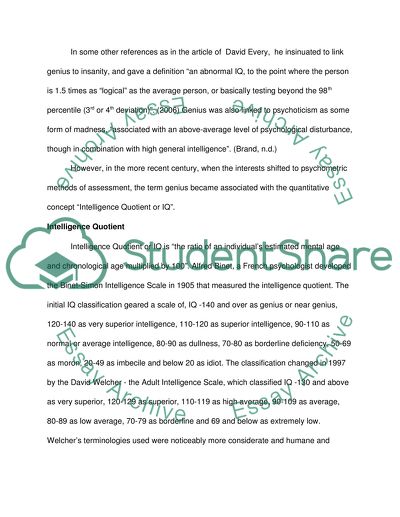Cite this document
(“Social Interaction of Those with Genius IQs Essay”, n.d.)
Social Interaction of Those with Genius IQs Essay. Retrieved from https://studentshare.org/miscellaneous/1514564-social-interaction-of-those-with-genius-iqs
Social Interaction of Those with Genius IQs Essay. Retrieved from https://studentshare.org/miscellaneous/1514564-social-interaction-of-those-with-genius-iqs
(Social Interaction of Those With Genius IQs Essay)
Social Interaction of Those With Genius IQs Essay. https://studentshare.org/miscellaneous/1514564-social-interaction-of-those-with-genius-iqs.
Social Interaction of Those With Genius IQs Essay. https://studentshare.org/miscellaneous/1514564-social-interaction-of-those-with-genius-iqs.
“Social Interaction of Those With Genius IQs Essay”, n.d. https://studentshare.org/miscellaneous/1514564-social-interaction-of-those-with-genius-iqs.


